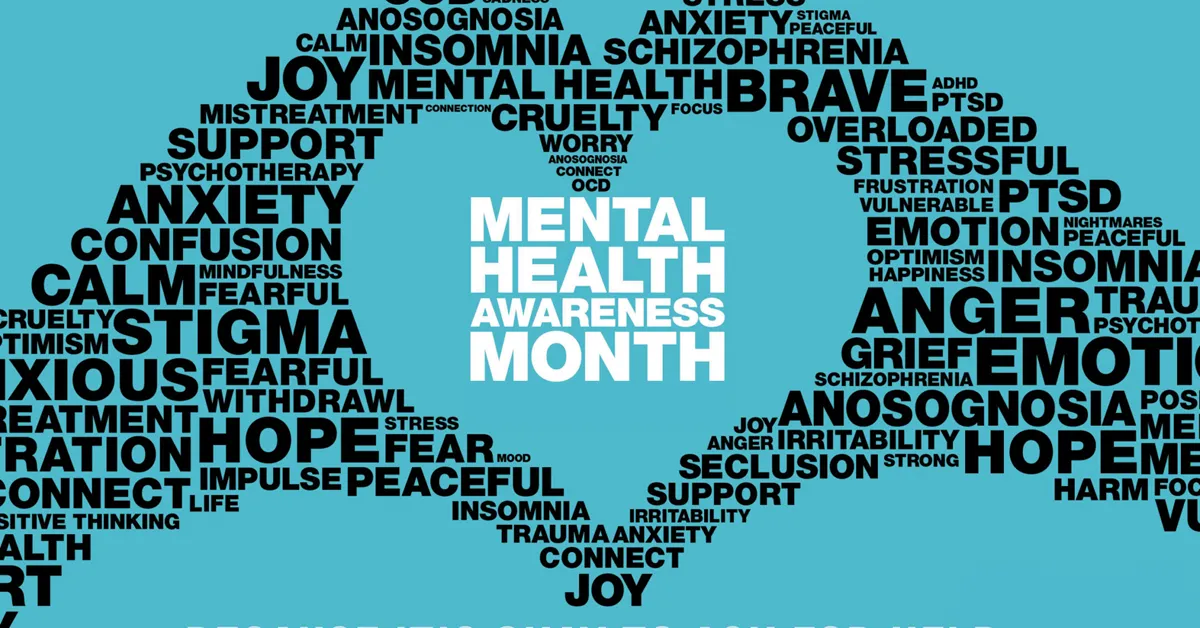The Importance of Accessible Behavioral Health Services in Your Region
The Importance of Accessible Behavioral Health Services in Your Region
Blog Article
Inpatient Mental Health Providers: A Path to Healing and Security
Inpatient mental wellness services play an essential function in dealing with acute mental crises, using a meticulously organized atmosphere that promotes healing and stability. These solutions not only encompass comprehensive assessments and individualized therapy plans yet also offer continuous access to restorative treatments and medical support. The importance of this technique expands past immediate relief, suggesting a transformative influence on long-term psychological health. However, the intricacies of the admission procedure and the value of aftercare raise essential concerns regarding accessibility and effectiveness in the wider context of mental healthcare. What ramifications might these aspects have for people looking for help?
Understanding Inpatient Mental Wellness Services
Inpatient mental health solutions are crucial for supplying structured and extensive like individuals experiencing extreme psychological distress or psychological illness. These solutions typically include the admission of people to specialized centers where they obtain continuous guidance and assistance from a multidisciplinary group of mental health professionals. The key objective of inpatient care is to maintain patients, guaranteeing their security and resolving acute signs that may posture a risk to themselves or others.
Inpatient programs often include a variety of restorative treatments, consisting of individual and team treatment, drug administration, and psychoeducation. The organized atmosphere is developed to promote recuperation by providing a regular routine, decreasing exterior stressors, and assisting in the development of dealing techniques.
Admission to inpatient services is generally taken into consideration when outpatient treatment alternatives have confirmed inadequate or when an individual remains in situation. Facilities may differ in regards to their certain focus, with some focusing on certain disorders such as stress and anxiety, depression, or substance usage. Via extensive analyses and tailored therapy strategies, inpatient mental wellness services aim to supply the essential assistance for people to gain back stability and plan for a transition to less intensive degrees of care.
Benefits of Inpatient Care
The advantages of inpatient treatment are significant, especially for people encountering severe mental wellness challenges. Inpatient therapy gives a structured atmosphere that cultivates recovery by lowering diversions and stressors connected with every day life. This controlled setup enables clients to concentrate solely on their mental health and wellness, assisting in the required time for healing.
Moreover, inpatient care deals 24/7 accessibility to healing and clinical assistance. This continuous availability guarantees that people can get immediate attention during crises, which is important for those experiencing severe episodes - Inpatient Mental Health Program. The joint strategy amongst medical personnel, consisting of registered nurses, specialists, and psychiatrists, boosts the top quality of care and promotes a comprehensive treatment plan tailored to private needs
Additionally, the common element of inpatient care promotes a sense of belonging and assistance among individuals. Team therapy sessions and shared experiences can minimize feelings of isolation, motivating individuals to take part in their recovery proactively.
Furthermore, inpatient programs often provide individuals with necessary coping approaches and skills that can be testing to develop in outpatient setups. By attending to underlying issues within an encouraging framework, inpatient treatment can cause a lot more secure end results and a smoother shift back to day-to-day life, inevitably paving the course to continual healing.
Treatment Strategies and Therapies
Different therapy techniques and treatments are employed in inpatient mental health and wellness services to attend to the one-of-a-kind demands of each patient. These approaches are made to promote healing and promote psychological stability in an organized setting.

Cognitive Behavior Modification (CBT) is an extensively used strategy, helping people in identifying and modifying unfavorable idea patterns that add to their psychological health problems - Inpatient Mental Health Program. Dialectical Behavior Modification (DBT) is another efficient approach, particularly for those with borderline individuality disorder, concentrating on emotional policy and social effectiveness
Pharmacotherapy plays an important role in treatment, with psychiatric medications suggested to manage signs of problems such as depression, anxiety, and schizophrenia. Regular monitoring and adjustments guarantee the efficiency of these drugs while minimizing side impacts.
Group therapy promotes a sense of neighborhood and assistance amongst individuals, permitting them to share experiences and dealing methods. In addition, all natural treatments, such as art and songs treatment, promote self-expression and emotional healing.
Ultimately, the combination of these diverse therapeutic modalities provides a comprehensive treatment plan customized to every individual's certain needs, intending to boost their total health and promote an effective transition back right into day-to-day life.
The Admission Refine
Navigating the admission process for mental health services is a crucial initial step toward recuperation. This procedure commonly starts with an assessment conducted why not look here by a psychological health and wellness specialist. Throughout this assessment, the individual's psychological health background, symptoms, and prompt demands are completely examined. This thorough evaluation assists identify the appropriate degree of care and makes certain that the individual receives tailored therapy.
When the analysis is completed, the following action includes going over the possible treatment alternatives. The individual and the treatment group collaboratively choose the finest strategy, which might consist of inpatient care if the circumstance is deemed serious. This is adhered to by the completion of required documentation, including insurance policy verification and permission kinds, to ensure that all legal and economic aspects are attended to.
In addition, family involvement might be encouraged during this phase to supply assistance and gather point of views on the person's scenario. Inevitably, the admission procedure intends to produce a secure and supportive environment for the client, permitting a smooth change into inpatient care. By understanding and participating in this process, individuals can take an essential step toward achieving mental health stability and recovery.

Aftercare and Ongoing Support
After completing an inpatient psychological wellness program, individuals commonly encounter the critical task of transitioning to aftercare and recurring assistance, which are important for sustained healing. This stage is vital for reinforcing the skills and dealing devices found out article source during the inpatient stay, guaranteeing that individuals continue to advance in their psychological wellness trip.
Aftercare typically includes a combination of outpatient therapy sessions, support system, and medicine administration. Engaging in regular therapy allows individuals to deal with continuous difficulties and develop techniques to handle stressors in their day-to-days live. Support groups offer a feeling of neighborhood and common experience, promoting link and understanding among peers dealing with similar struggles.
Additionally, ongoing support might consist of household involvement, where enjoyed ones are educated about psychological health issues and urged to join the recuperation procedure. This holistic method creates a durable try these out assistance network, improving the individual's chances of long-term security.
Eventually, ongoing and aftercare assistance serve as a bridge in between inpatient treatment and independent living, encouraging individuals to navigate their psychological wellness difficulties with durability and confidence. Focusing on these resources is vital for cultivating a sustainable healing trajectory.
Conclusion

Inpatient psychological health solutions play a critical function in addressing severe emotional dilemmas, supplying a thoroughly organized setting that fosters recovery and security.Inpatient mental health and wellness solutions are vital for providing organized and extensive treatment to individuals experiencing serious emotional distress or psychological health problem. Through detailed analyses and tailored treatment strategies, inpatient psychological health solutions intend to offer the needed assistance for individuals to regain security and prepare for a transition to much less extensive degrees of treatment.

Report this page